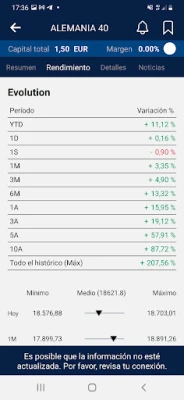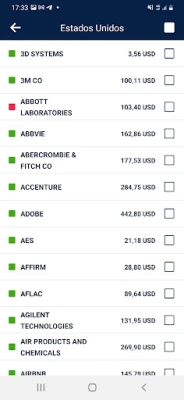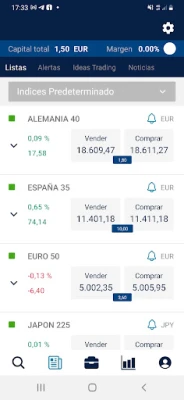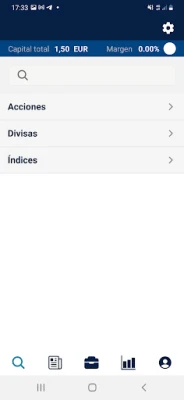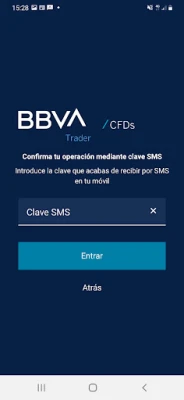
Latest Version
1.2.7
March 19, 2025
BBVA
Finance
Android
0
Free
com.bbva.tradercfd
Report a Problem
More About BBVA Trader CFD
Understanding CFDs: Risks and Considerations for Retail Investors
Contracts for Difference (CFDs) are intricate financial instruments that come with a significant risk of rapid monetary loss, primarily due to leverage. Statistics reveal that approximately 76.54% of retail investors experience losses when trading CFDs with this provider. It is crucial for potential investors to evaluate their understanding of how CFDs operate and to assess whether they can afford to take on the high risk of losing their capital.
What Are CFDs?
CFDs, or Contracts for Difference, are derivative financial products that allow traders to speculate on the price movements of various assets without actually owning the underlying asset. This means that you can profit from both rising and falling markets. However, the complexity of CFDs can lead to significant financial risks, especially for inexperienced traders.
The Mechanics of CFD Trading
When you enter a CFD trade, you agree to exchange the difference in the price of an asset from the time the contract is opened to when it is closed. If the market moves in your favor, you can realize a profit; conversely, if it moves against you, you incur a loss. The leverage offered by brokers can amplify both gains and losses, making it essential to understand how leverage works in CFD trading.
Understanding Leverage in CFD Trading
Leverage allows traders to control a larger position with a smaller amount of capital. For instance, a leverage ratio of 1:100 means that for every $1 you invest, you can control $100 worth of the asset. While this can lead to substantial profits, it also increases the potential for significant losses. Therefore, it is vital to use leverage cautiously and to have a solid risk management strategy in place.
Risks Associated with CFD Trading
CFDs are not suitable for everyone, and the risks involved can be substantial. Here are some key risks to consider:
- Market Risk: The value of CFDs can fluctuate significantly, leading to potential losses.
- Leverage Risk: While leverage can enhance profits, it can also magnify losses, leading to a rapid depletion of your trading capital.
- Counterparty Risk: Trading CFDs involves a counterparty, typically a broker. If the broker faces financial difficulties, it could impact your ability to withdraw funds.
- Regulatory Risk: Changes in regulations can affect the trading environment and the availability of certain products.
Assessing Your Risk Tolerance
Before engaging in CFD trading, it is essential to assess your risk tolerance. Ask yourself the following questions:
- Do you fully understand how CFDs work?
- Can you afford to lose the capital you plan to invest?
- Have you developed a risk management strategy to protect your investments?
Understanding your financial situation and risk appetite will help you make informed decisions and avoid unnecessary losses.
Strategies for Successful CFD Trading
To navigate the complexities of CFD trading successfully, consider implementing the following strategies:
- Educate Yourself: Take the time to learn about CFDs, market analysis, and trading strategies. Knowledge is your best defense against losses.
- Use a Demo Account: Many brokers offer demo accounts that allow you to practice trading without risking real money. Use this opportunity to hone your skills.
- Set Stop-Loss Orders: Protect your capital by setting stop-loss orders to limit potential losses on your trades.
- Diversify Your Portfolio: Avoid putting all your capital into a single trade. Diversification can help mitigate risks.
Conclusion: Make Informed Decisions
CFDs can be a valuable tool for experienced traders looking to capitalize on market movements. However, the high risk of losing money quickly due to leverage makes it imperative for retail investors to approach CFD trading with caution. Always ensure you understand the mechanics of CFDs, assess your risk tolerance, and implement sound trading strategies. By doing so, you can navigate the complexities of CFD trading more effectively and make informed decisions that align with your financial goals.
Rate the App
User Reviews
Popular Apps










Editor's Choice











